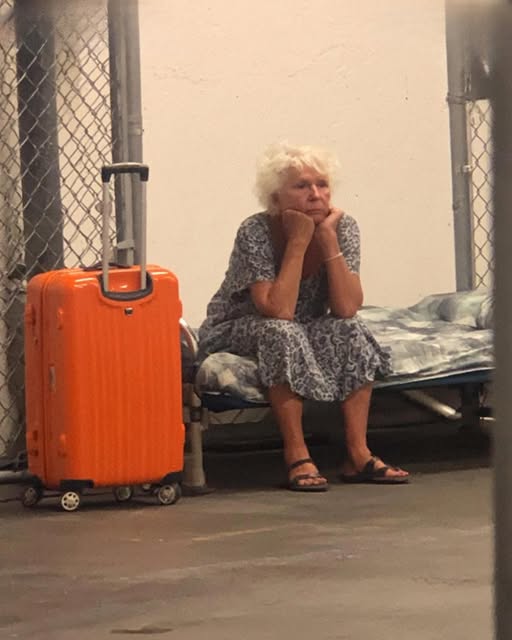At 72, Minerva had imagined her life would continue quietly and steadily. After losing both her husband and her daughter, she devoted all her remaining love, energy, and trust to her grandson, Tyler. He had become the center of her world, her reason to wake up each morning. Each month, she carefully set aside her rent money, confident that Tyler would manage it responsibly on her behalf. She trusted him completely, believing that family meant looking out for one another without question.
But one afternoon, that trust came crashing down. The landlord arrived at her door, his face solemn, bearing news that pierced Minerva’s heart: the rent hadn’t been paid for months. Shock and disbelief washed over her. She had always done her part, and yet here she was, facing eviction, her home suddenly out of reach. Confusion turned to fear as she realized she had nowhere else to go. For a few nights, Minerva stayed in a shelter, a place filled with strangers and unfamiliar routines. It was a humbling and painful experience, one that stripped her of her sense of security, yet in those quiet, vulnerable moments, she discovered an important truth—trust can be broken, but dignity must never be surrendered.
As the layers of betrayal began to unfold, the painful reality became clear: Tyler had been keeping the money for himself. He had watched his grandmother struggle, and rather than helping, he prioritized his own wants, leaving her without a home and in emotional turmoil. The betrayal cut deeper than Minerva could have imagined, for she had given him everything—her savings, her confidence, her unwavering love—expecting only honesty in return. The sense of hurt was profound, yet it did not crush her. In an unexpected turn, Tyler’s wife stepped forward, revealing the truth to Minerva and pledging to stand by her side. This unlikely ally became a source of strength, compassion, and courage, helping Minerva navigate the emotional and practical aftermath of the deception.
Together, they devised a plan to reclaim her home and restore her sense of security. Each step was small but significant—phone calls, paperwork, careful negotiations—leading to the eventual reopening of her doors and a renewed feeling of stability. But beyond the material recovery, Minerva gained something even more precious: a profound understanding of what family truly means. She realized that family is not simply defined by blood or proximity, but by loyalty, honesty, respect, and the willingness to protect one another even in the darkest times.
At 72, Minerva had been forced to confront the fragility of trust and the resilience of the human spirit. She learned that while betrayal can shatter illusions, it need not destroy hope. She found her voice once more, stood tall despite the scars, and reminded herself—and everyone around her—that love, integrity, and truth carry far greater strength than deceit. Through this experience, she emerged wiser, stronger, and more certain than ever: even in the face of profound hurt, life can offer second chances, and it is never too late to reclaim one’s dignity and joy.
